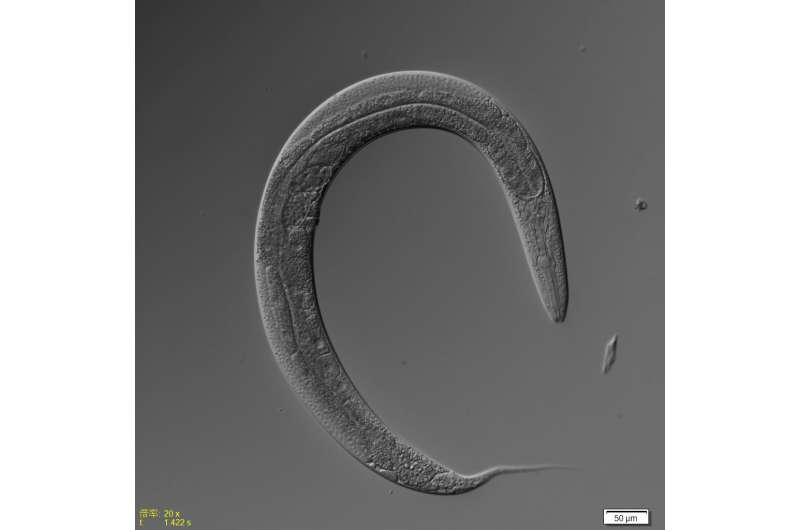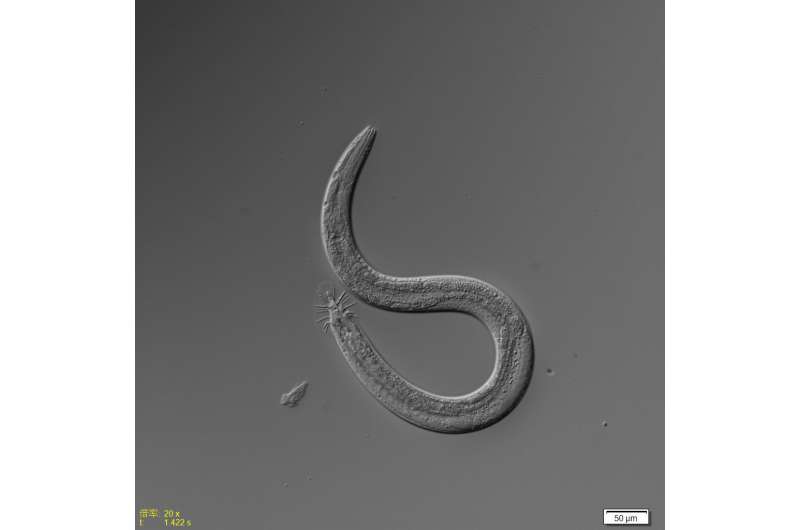Dietary restriction and life span in male and hermaphrodite worms

An organism's lifespan is known to be affected by its sex and diet, but where these two factors overlap biologically is not well understood. Researchers in Japan looked for clues in worms—C. elegans—that have two sexes: hermaphrodite or male. They found that hermaphrodite worms can live over two weeks longer when put on various forms of dietary restriction, whereas male worms show no change in lifespan. Males were only responsive to dietary restriction if there were mutations in a steroid hormone receptor linked to sex determination. The work appears December 26 in Cell Reports.
"We hope that this study will help answer our fundamental questions of how ageing evolves and how lifespans are determined," says first author Sakiko Honjoh, now at University of Tsukuba and who conducted the work in the lab of Eisuke Nishida at Kyoto University.
Behaviorally, the hermaphrodites and the males reacted in opposite ways when faced with the same dietary restriction conditions: the hermaphrodites would immediately stop mating and saw an increase in their lifespan, whereas the males continued in their reproductive behaviors and lived for the same amount of time. The researchers posit that the hermaphrodites have evolved to stop their reproductive activities until their environment is favorable again.
One of the key differences between male worms and hermaphrodite worms is a pathway related to sex determination, specifically a steroid hormone receptor DAF-12. The researchers wondered whether there was also a link to dietary restriction. They found that DAF-12 was not helping the hermaphrodites live longer but was instead suppressing longevity in males. To test this further, the researchers studied males with a mutated DAF-12 pathway and observed that they lived 20 days longer, just like the hermaphrodites.

"In most species, both sexes are needed for the succession of the species and both show longevity responses during diet restriction. C. elegans male is a rare case where they are not required for the short-term succession," says Honjoh.
More information: Cell Reports, Honjoh et al.: "The Sexual Dimorphism of Dietary Restriction Responsiveness in C. elegans" www.cell.com/cell-reports/full … 2211-1247(17)31792-8 , DOI: 10.1016/j.celrep.2017.11.108
Journal information: Cell Reports
Provided by Cell Press




















